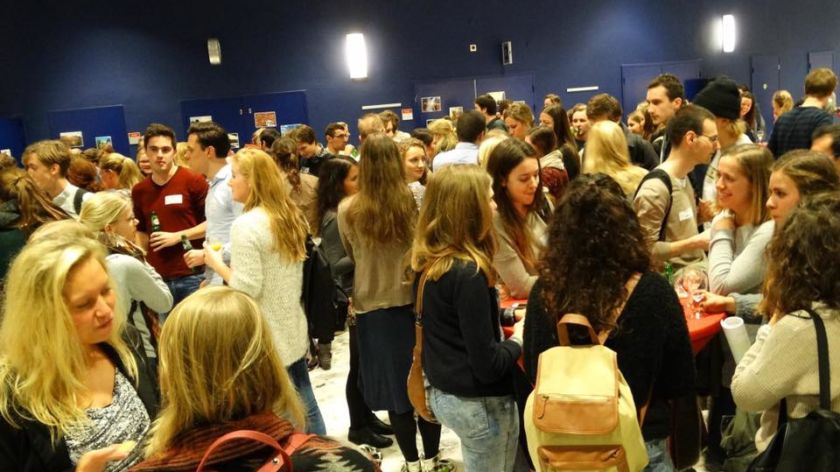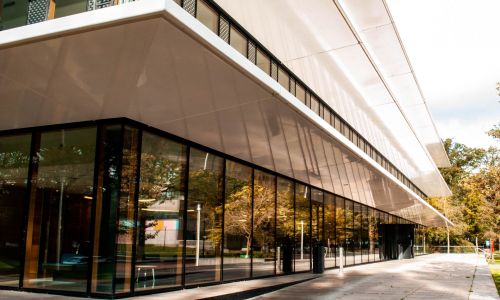Minister grudgingly accepts quota for education in English
-
 Internationale studenten. Foto ter illustratie Radboud International Students
Internationale studenten. Foto ter illustratie Radboud International Students
Things didn’t go as they should, Minister Robbert Dijkgraaf thinks. But he’s no longer resisting the VVD amendment that allows for limiting international student numbers. This is what he told the Senate.
Last February, the House of Representatives accepted a VVD amendment allowing for a student quota for tracks within a programme. This enables programmes to apply such a quota to an English-taught track in order to specifically exclude international students, without this affecting students in the Dutch-taught track.
This legislative amendment was disputed. Not necessarily in terms of content – the House of Representatives, the minister and the education sector have wanted this for a very long time – but in a constitutional sense: the amendment was tabled during the budget debate. This means the Senate cannot simply reject the amendment; this can only be done by rejecting the entire education budget.
Outgoing Minister of Education Robbert Dijkgraaf strongly advised against the proposal, if only for constitutional reasons. When you’re discussing the budget bill, you can’t just change another act (the one on higher education), he believed. This is also enshrined in the rules of the House of Representatives itself.
Critical questions
Now the same question is being raised in the Senate, but with one important difference: the minister is giving up his resistance, as demonstrated by his answers to the Senate’s critical questions.
Is it possible to make a substantive change in the law through the budget, the Senate asked? No, this is unusual and undesirable, Dijkgraaf upholds. But he apparently doesn’t want any further delays. The minister shared his ‘institutional-constitutional objections’ in the debate with the House of Representatives and in the end it’s up to the latter itself to decide, he says.
Should the Council of State issue an emergency recommendation about the amendment? No need, Dijkgraaf thinks, because you can already predict what the criticism is going to be. The Council already said on previous occasions that budget bills cannot be abused in this manner. What’s more, the Council of State already issued a recommendation on the content of the amendment, back when the previous Minister of Education proposed it.
Indirectly discriminating
Then there’s the problem of the student quota, via the language of instruction, indirectly discriminating between Dutch and foreign students. But that’s acceptable, says Dijkgraaf, as long as there are good reasons to do so.
If a programme can no longer keep up with the intake, he reasons, it has good reason to cap enrolments. Also, the quota cannot only be used in English-taught programme tracks, but in all tracks. You can also apply it to the Dutch-taught one. Or to a programme track in another city. The act itself doesn’t discriminate.
‘It will then be up to the institution’s board to decide whether using the instrument is proportionate and necessary to achieve the legitimate goal’, says Dijkgraaf. So higher education institutions have to make sure themselves that they don’t discriminate in applying such a quota.
Hurry
The House of Representatives used the budget bill out of impatience. Dijkgraaf has spent way too much time working on his Internationalisering in Balans (Internationalisation in Equilibrium) bill, a lot of parties think, so they took matters into their own hands in February. They were hoping the programmes could already use the track quota in the 2025-2026 academic year.
But the amendment wasn’t even a day old when Dijkgraaf shattered this illusion. The House may be in a hurry, but ‘it is highly uncertain whether passing this amendment would save any time’, the minister said at the time.
You can’t completely change the system overnight, he explains. Regardless of the politicians’ haste, it’s up to the programmes to design selection procedures and adapt the enrolment process together with Studielink. Studielink previously indicated this would actually take four years, says Dijkgraaf, even though it could possibly be done slightly quicker.
Translation: Taalcentrum-VU.



